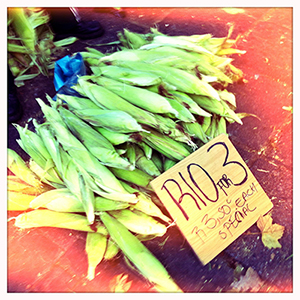Genetically modified corn still OK in SA

 JOHANNESBURG--A decade after genetically-modified corn first hit the shelves here, and on the heels of a controversial new scientific study of the effects of GM food, one of the largest agricultural associations on the continent has thrown its support behind the crop's use in South Africa and its export to many neighboring states.
JOHANNESBURG--A decade after genetically-modified corn first hit the shelves here, and on the heels of a controversial new scientific study of the effects of GM food, one of the largest agricultural associations on the continent has thrown its support behind the crop's use in South Africa and its export to many neighboring states.
In response to calls for a ban on GM corn in South Africa, Johan Moller, the president of the Agri SA said that a wholesale switch to unmodified corn would hurt the South African economy and ultimately the average South African consumer.
South African publication Business Day reports on the strategic importance of genetically-modified food in the country:
SA ranks ninth in genetically modified crop cultivation globally, with 2.3-million hectares being used to grow maize, soybeans and cotton. "In SA, almost all our maize is genetically modified," [Moller] said.
Local demands to ban the cultivation of RoundUp Ready corn NK603, produced by St. Louis-based biotechnology company Monsanto, have grown in recent weeks after a French study linked the consumption of the corn to an increased risk of cancer.
The study out of France's University of Caen found that the corn, genetically modified to be resistant to the herbicide RoundUp, caused a significant increase in the rate of cancerous tumors in lab rats fed it over a two-year period.
The African Center for Biosafety, the leading proponent for a ban on the corn in South Africa, has said that 40 percent of local corn originates from NK603.
The organization has previously said that South Africa "dumps GM maize around Africa," tracing 300,000 metric tons of the locally produced corn to markets in Swaziland, Mozambique and even as far away as Kenya. They said that overburdened and underfunded agricultural officials were unable to monitor the flow of GM foods in local markets.
Last week in response to the French study, Russia announced it was suspending the import of the corn and has asked its Institute of Nutrition to look into the study.
The Russian move comes as validation to some of the merits of the study. However, many inside the scientific community have questioned the study's findings.
Martina Newell-McGloughlin, a plant biotechnologist at the University of California Davis, told the Examiner:
"There is very little scientific credibility to this paper, [...] The flaws in the test are just incredible to me. To be totally honest with you, the type of statistical analysis they used is really a type of fishing expedition. One individual referred to it as ‘fantasy statistics.'"

Monsanto itself released a statement in reaction to the study, saying it "does not meet minimum acceptable standards for this type of scientific research, the findings are not supported by the data presented, and the conclusions are not relevant for the purpose of safety assessment."
AfricaBio, another biotech South African association, weighed in saying, "Numerous scientists worldwide have called into question the paper's data."
Agri SA's Moller has pointed to the fact that the GM corn has higher yields than crops that aren't modified. The increase in harvests without the need for more pesticides keeps the price of corn low in a country where any rise in the cost of food is felt acutely by many of its citizens.
Photos: Flickr/The World Bank and bittegitte
This post was originally published on Smartplanet.com